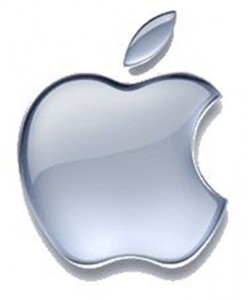iPad Über Alles, Despite Apple and AT&T
by Egatz
 Today’s lesson is, if you ever perversely doubted it, not all top management is infallible.
Today’s lesson is, if you ever perversely doubted it, not all top management is infallible.
In a bizarre four-way race with British Petroleum, AT&T and Sarah Palin to see who can deny reality the longest, Apple made my prediction come true regarding the giving away of free “bumpers” for the iPhone 4 in order to stem the inevitable waves of class action lawsuits. With one-armed research chimpanzees able to reproduce the now-infamous Apple “death grip,” and an initial wave of a lame and misguided PR effort to deflect bad hardware design as a software bug,
Originally sent out via Twitter on 24 June, I wrote “Who wants to bet Apple’s $30 bumpers are going to be given away for free?” It’s the fastest and cheapest way for the Great and Powerful Jobs to avoid a mandatory hardware recall by giving away a $30 product that had a $28.50 profit. Still, Apple’s magic is holding. On Tuesday, 20 July, Apple destroyed Wall Street expectations with a 77 percent profit growth on the backs of 3.47 million Macs, 3.27 million iPads, and 8.4 million iPhones sold. Despite the most glaring PR misstep since Apple’s old 90-day warranty in the pre-Internet days, Jobs has heard and listened, despite the public face-saving denials.
The Street and the hands of most users are not the only places Apple’s usually-stellar engineering has won friends. Jakob Nielsen and team have released a report showing Apple’s iPad trounces Amazon’s Kindle in users’ reading speeds. I’ve made it no secret I wouldn’t pay more than fifty bucks for the Kindle, a one-trick black and white pony with a lot of bad plastic buttons and an interface that appears it was designed by Microsoft on a good day. Looks like usability and interface expert Jakob feels the same way.
Jeff Bezos and team at Amazon recently announced they’re selling more e-books than hardcover copies of similar titles. This claim is dubious, but for the sake of trees and the air we breathe, I hope it may be true. The reasons for this announcement are suspicious, at best. First, the iPad is eating their lunch. The numbers are not lying.
Second, rumors abound Apple will quickly capitalize on the runaway success of the iPad with new 5.6- and 7-inch models in time for the Christmas shopping frenzy. If you doubt this, study your history of what Apple did with iPod technology, which wasn’t initially anywhere near as wildly successful as the iPad: exploit the brand over a range of price points. Can you say “paperback iPad?” Of course it won’t be made of paper, but Cupertino could swing a similar form factor without reinventing the wheel. I wonder how much sleep Jony Ives is getting these days.
Third, Amazon notoriously was silent on numbers of Kindles sold until the iPad exploded. Numbers were revealed in ballpark terms (don’t these guys have databases tracking their products? You’d think they would, selling stuff over the Internet) only as a defense against the giant on the southern horizon was undeniable.
Fourth, the Kindle prices continue to drop. The new and improved model, the Kindle DX is down to $380. That’s still hundreds too much to pay for a device that essentially does one thing in black and white (okay, a few shades of gray), compared to a fully functional computer called the iPad, which starts at $500.
Fifth, Amazon sells stuff. They’re e-commerce and database experts, not designers. This is pretty clear from using a Kindle itself, particularly their first offering. Have you ever just held one in your hand? The subliminal message I get is “cheap.” That’s how it feels, and Apple knows feeling is everything. Despite Amazon quickly buying up touchscreen technology upon the announcement of the iPad, don’t expect to see anything as slick and integrated as Apple hardware and software coming from Amazon any time soon. Apple’s got decades of lead time on Amazon, despite how quickly Bezos and the boys may be buying up disparate technologies and selling books at a loss to gain marketshare.
Some top management continues to fail. Some top management makes missteps. Meanwhile, publishers who failed to learn the lessons of the music industry continue to watch largely from the sidelines while hoping they choose right. I do, too.